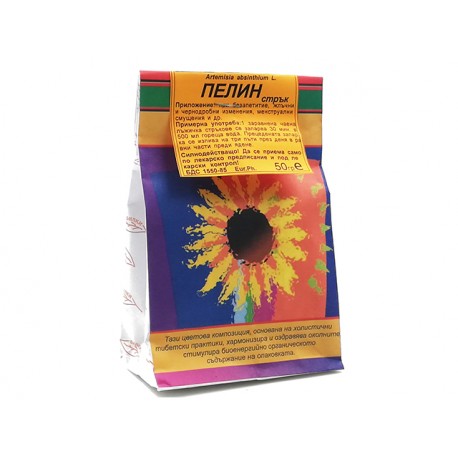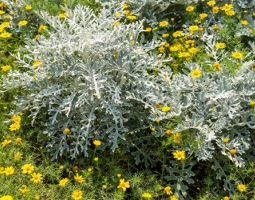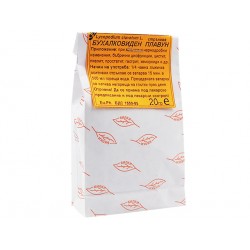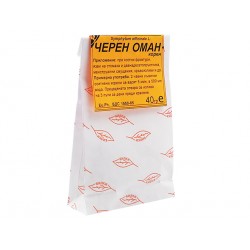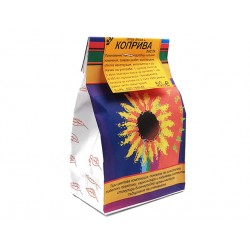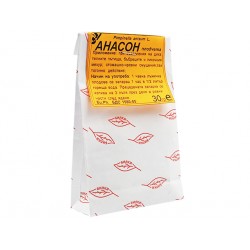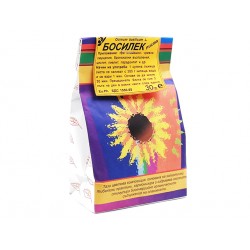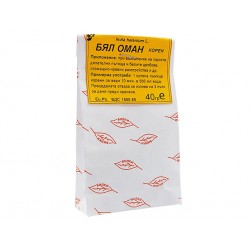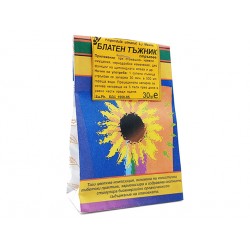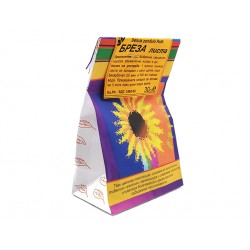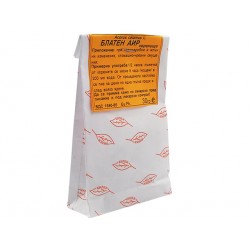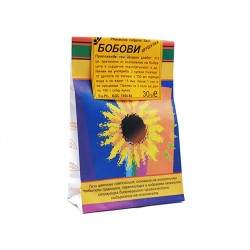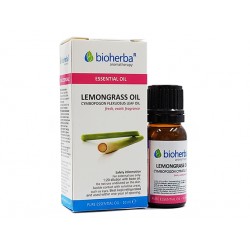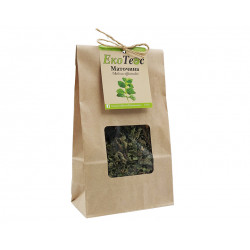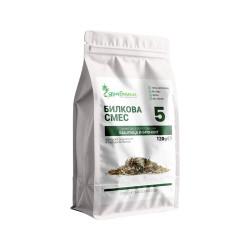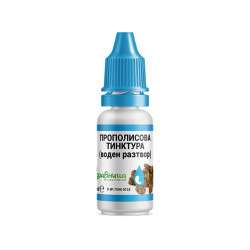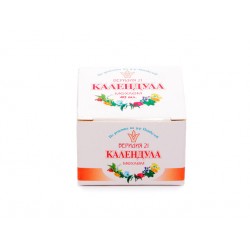Wormwood has been used as a medicinal plant since ancient times. Numerous effects have been attributed to it, including increased appetite, digestion and menstruation.
* Find a product for a specific disease such as write his name (eg .: Diabetes)
No products
Wormwood (Artemisia absinthium L), dried stalk, Bilkaria, 50 g
1,43 € / 2,80 лв
Wormwood can be used as an aid in the absence of appetite, biliary and hepatic changes, menstrual disorders, etc.
Package Quantity: 50 g
Origin: Bulgaria
Ingredients: Wormwood - stalk
Shipping Weight: 0.060 kg


Product information
Wormwood
Artemisia absinthium L.
Other names: grand wormwood, absinthe, absinthium, absinthe wormwood
Artemisia absinthium is a herbaceous perennial plant with fibrous roots. The stems are straight, growing to 0.8–1.2 metres tall, grooved, branched, and silvery-green. The leaves are spirally arranged, greenish-grey above and white below, covered with silky silvery-white trichomes, and bearing minute oil-producing glands; the basal leaves are up to 250 mm long, bipinnate to tripinnate with long petioles, with the cauline leaves (those on the stem) smaller, 50–100 mm long, less divided, and with short petioles; the uppermost leaves can be both simple and sessile (without a petiole).
It grows in grassy and stony places, in bushes and gardens, along fences and roads throughout the country, mainly in the plains and foothills.
The flowering leafy tops (Herba Absinthii), cut about 25 cm from the top, are used. They gather at the beginning of flowering.
Bulgarian folk medicine widely uses the herb for gastritis and other inflammations of the stomach, liver and bile diseases, bad breath, anemia, insomnia, intestinal parasites, irregular menstruation, chest pain, bronchial asthma, eczema, wounds, insect bites and etc.
Wormwood - dried stalk
Application: as an aid in the absence of appetite, biliary and hepatic changes, menstrual disorders, etc.
Method of preparation: Put 1 teaspoon of the herb in 500 ml of hot water and leave for 30 minutes. Strain and drink in 3 equal parts the day before meals.
Packing: 50 g
Reviews
Related posts
Products in the same category
Customers who bought this product also bought:
-
 Lemongrass, essential oil, Bioherba, 10 ml
Lemongrass, essential oil, Bioherba, 10 ml 2,25 €
-
 Lemon balm, herbal tea, EkoTeos, 20 g
Lemon balm, herbal tea, EkoTeos, 20 g 1,48 €
-
 Nettle Shampoo, Bioherba, 200 ml
Nettle Shampoo, Bioherba, 200 ml 1,64 €
-
 Herbal Blend 5, Cough and Bronchitis Support, Zdravnitza, 120 g
Herbal Blend 5, Cough and Bronchitis Support, Zdravnitza, 120 g 7,20 €
-
 Propolis - aqueous extract, alcohol free, Zdravnitza, 30 ml
Propolis - aqueous extract, alcohol free, Zdravnitza, 30 ml 3,68 €
-
 BIO Cranberry juice, Medicura, 330 ml
BIO Cranberry juice, Medicura, 330 ml -
 White birch (Betula pendula), dried leaves, bark or fruits, Bilkaria, 30/30/20 g
White birch (Betula pendula), dried leaves, bark or fruits, Bilkaria, 30/30/20 g 1,18 €
-
 Hair Growth, Accelerating Hair Mask, Dr. Derehsan, 250 ml
Hair Growth, Accelerating Hair Mask, Dr. Derehsan, 250 ml 6,80 €
-
 Calendula, Herbal Cream, Skin Softening, 35 ml
Calendula, Herbal Cream, Skin Softening, 35 ml 3,17 €
-
 Hair and Body shower gel - cherry cheesecake, Stani Chef's, 250 ml
Hair and Body shower gel - cherry cheesecake, Stani Chef's, 250 ml 4,60 €


